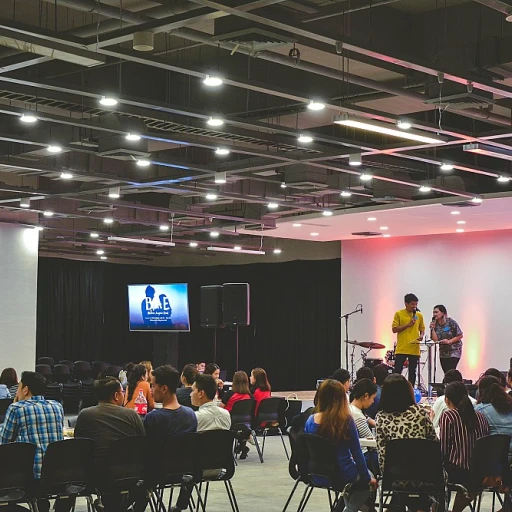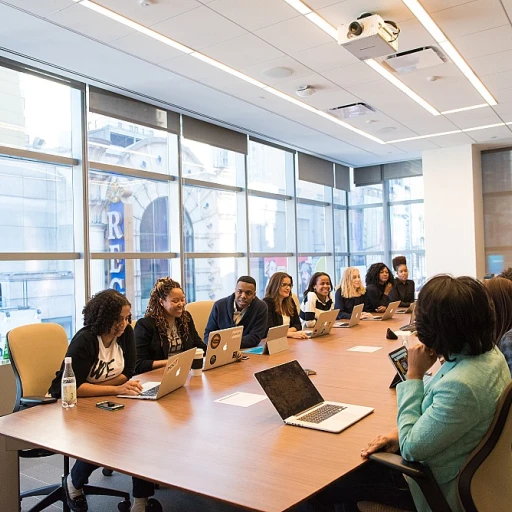
Overview of Oregon Work Break Laws
Overview of Current Regulations
Oregon's labor laws surrounding work breaks offer clear guidelines to ensure employees receive necessary rest and meal periods. Oregon employers are required to provide both paid rest breaks and unpaid meal breaks, which vary based on the hours an employee works. These regulations are in place to safeguard the well-being of workers while maintaining operational efficiency.
Defining Breaks and Meal Periods
In Oregon, employees are entitled to a ten-minute rest break for every four hours worked or the major fraction of four hours. This rest period is crucial for maintaining productivity and ensuring workers are not over-exerted throughout their workday. Additionally, a 30-minute unpaid meal period must be given if the employee's shift is six hours or more. Employers must ensure that meal periods are free from duties, allowing employees proper time to recharge.
Legal Framework and Compliance
The minimum wage laws in Oregon are designed to guarantee that employees receive fair compensation and adequate breaks during their work periods. Non-compliance with these labor laws can result in penalties for employers, highlighting the need for effective HR communication to ensure all parties are aware of their rights and responsibilities. For a more in-depth understanding of these regulations, reading about how employee feedback shapes HR communication can be enlightening.
Impact on Human Resources Communication
Bridging the Communication Gap with Employees
For organizations in Oregon, effectively communicating work break regulations is critical. Employers need to understand that providing thorough and clear information about meal and rest breaks can enhance compliance and employee satisfaction. The way Oregon labor laws are communicated can heavily influence how employees perceive their rights and can contribute to workplace harmony.
When discussing the importance of rest breaks, employers must consider all aspects such as the distinction between meal periods and rest breaks. Under Oregon law, an employee must receive specific break times to ensure their well-being and productivity. Miscommunication can lead to confusion and disputes, so clarity is essential.
- Transparency: Direct and transparent communication avoids any misunderstandings regarding the workplace break policies.
- Consistency: It is imperative that all policy updates regarding minimum wage and break laws are consistently communicated and documented.
- Training: HR departments should include employee education programs about Oregon's labor rules, so everyone understands the standard and exceptions to break laws.
- Feedback Channels: Creating platforms for employee feedback enables workers to express concerns or provide input on existing policies.
Strategic communication using these methods can avoid potential compliance complications and foster a trusting work environment. Enhance your HR strategies and improve communication skills with insights found in the power of employee feedback.
Challenges in Implementing Work Break Policies
Implementation Obstacles in Work Break Policies
The implementation of work break policies in Oregon presents several challenges for employers. The state's labor laws mandate specific time periods for rest breaks and meal periods, yet many organizations encounter difficulties in ensuring full compliance. One of the fundamental issues arises from balancing operational efficiency with providing adequate breaks. The law requires Oregon employers to provide a 30-minute meal period for employees working more than six hours. Additionally, they must offer a 10-minute rest break for every four hours worked. Failure to comply with these laws can lead to significant legal and financial repercussions.- Scheduling Conflicts: Managing schedules to accommodate rest and meal breaks can be particularly challenging in industries with fluctuating work demands. Ensuring that meal breaks align with productivity needs without compromising on compliance requires careful planning.
- Compliance Monitoring: Strict monitoring is necessary to ensure compliance, and this often requires dedicated resources that smaller employers might lack. An oversight in recording the time employees leave and return from their breaks can lead to penalties.
- Communication Barriers: Clearly conveying the legal requirements and ensuring employees fully understand their rights to breaks is essential for compliance. Miscommunication can lead to employees not taking their entitled breaks, unknowingly breaching the laws.
Effective Communication Strategies
Strategies to Enhance Communication on Work Break Policies
Incorporating effective communication strategies is vital for both employers and employees to clearly understand the work break regulations in Oregon. Proper understanding of these labor laws ensures all parties are aware of their rights and responsibilities concerning meal periods and rest breaks.- Regular Training and Workshops: Employers should provide regular training sessions for employees, elucidating the specifics of Oregon's break laws. These sessions can help workers understand the minimum wage regulations, meal breaks, and the importance of being relieved from duties during designated periods.
- Clear Written Policies: Develop comprehensive written policies that outline rest break guidelines. These should be easily accessible and regularly updated to reflect any changes in Oregon labor laws. Providing clarity ensures there is no ambiguity about entitled break time.
- Frequent Employee Check-ins: Manage open channels of communication by conducting regular check-ins. This allows employees to voice concerns about their work periods and helps employers address any potential issues proactively.
- Feedback Mechanisms: Create platforms for employees to provide feedback on their meal rest experiences. Such systems empower worker participation and ensure any inconsistencies in break enforcement are quickly remedied.
- Utilization of Digital Communication Tools: Leveraging modern communication tools can streamline the dissemination of information. Employers provide updates efficiently, ensuring that all employees are informed about their rights regarding meal periods and rest breaks.
Case Studies: Real-World Applications
Examples of Successful Implementation
Employers in Oregon have a strong reputation for adhering to labor laws, including break laws. Many have successfully embraced meal periods and rest breaks as opportunities to enhance employee morale and productivity. By proactively communicating the requirements and benefits of these breaks, companies have been able to foster a supportive work environment.
For instance, a well-known retail chain implemented a comprehensive communication strategy centered around Oregon's meal break laws. They provided employees with detailed schedules and guidelines to ensure breaks were not only taken but were observed across all departments. This approach not only guaranteed compliance with Oregon labor laws but also helped boost worker satisfaction.
Feedback from Employees
Employees generally appreciate when their employers provide clear and consistent communication about meal and rest periods. Channels such as intranet updates, management briefings, and employee handbooks have proven effective. These tools ensure that employees are well-informed about their break times, thus minimizing misunderstandings and reinforcing compliance with Oregon employers' obligations under labor law.
Feedback loops, whether in the form of surveys or direct communication channels, have been beneficial. These insights help Oregon employers adapt their break policies to better suit the needs of their workforce while remaining aligned with labor regulations.
Lessons Learned
Employers who engage their workforce in open dialogue about break policies often discover that even the simplest communication improvements can significantly enhance employee experiences. Regular training sessions, both for employees and management, emphasize the importance of complying with Oregon laws, including the timely administration of meal breaks and rest periods during the work period.
Incorporating feedback systems further refines these policies, ensuring they meet the minimum needs of both employees and employers. Through effective communication and engagement strategies, Oregon employers continue to set a standard for maintaining healthy work-life balances while complying with stringent labor regulations.













